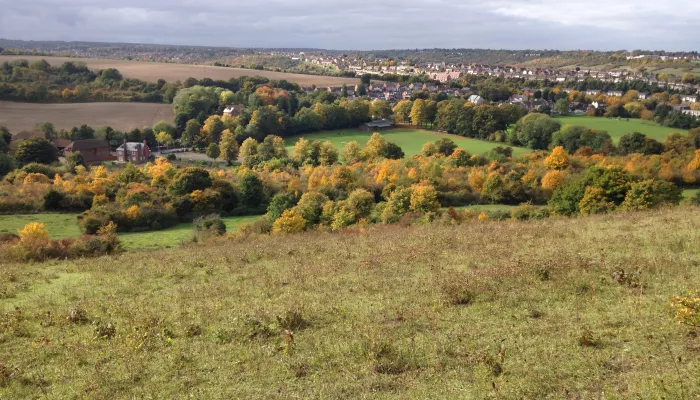About the reserve
Some of our rarest and most threatened species thrive on this restored chalk grassland just a stone’s throw from one of Kent’s biggest conurbations - Straw belle moth, Small blue butterfly, Yellowhammer and Roman snail to name but a few.
Human history has played its part in creating the diversity. Large blocks of concrete from an anti-aircraft gun emplacement provides shelter for reptiles, backfilled WWII practise trenches are filled with Man Orchids, Red star thistle established here when it was used by people with horse drawn wagons and each year a different vegetable pops up in the most recently cleared areas.
There is an amazing team of volunteers and members of the public who help to keep this site looking it best. Helping with everything from winter scrub clearance and fence repair to plant surveys and rubbish collection. It’s a real team effort.
Contact Us
If you need to get in touch regarding Darland Banks, for any reason, please contact:
Rob Pennington
Contact number: 01622 662012
Contact email: [email protected]
Environmental designation
- Local Nature Reserve (LNR)

